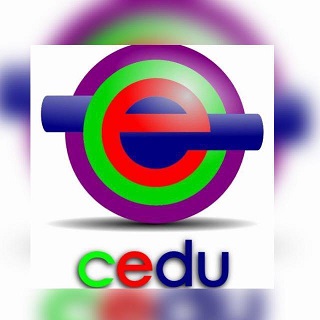SPECIALIZED EDUCATIONAL SERVICE FOR STUDENTS WITH VISUAL DISABILITY IN TIMES OF REMOTE EDUCATION
Keywords:
Remote Teaching, Specialized Educational Service, Visual ImpairmentAbstract
This text deals with specialized educational service for students with visual disability in times of remote teaching services. The aim of this study is to verify the evaluation of students with visual disability on the experience of remote educational services during the COVID-19 pandemic. We searched to answer the following research question: what is the evaluation of students with visual disability about this new experience of remote education? To construct the data, a self-applied questionnaire was used, the planning of the visits and the activities performed during the period comprising the pandemic. The data analysis was in light of Vygotsky's socio-interactionist theory. Thus, all the elements exposed, thought and oriented to remote teaching created an atmosphere of discoveries, which boosted the process of inclusion beyond the common classroom. They introduced the technological elements in the routine of students with visual disability, providing them with the construction of an intellectual and affective learning with their peers, demonstrated throughout the process.
Downloads
References
AMORIM, Marília Carollyne Soares de; et al. Prática de ensino no atendimento educacional especializado (AEE) no contexto da pandemia no município de Teresina. CONEDU VII Congresso Nacional de Educação, Maceió – AL, 2020. Disponívelem: http://www.editorarealize.com.br/artigo/visualizar/74293Acesso em 29 de jun de 2021.
BAHIA. Diretrizes da Educação Especial. Salvador, 2017. Disponível em: <http://escolas.educacao.ba.gov.br/educacaoespecial>. Acesso em: 15 ago. 2020.
BRASIL. Comitê de Ajudas Técnicas. Tecnologia Assistiva. Brasília: CORDE, 2009. 138p.
BRASIL. Resolução nº. 4, de 2 de outubro de 2009. Diretrizes Operacionais para o Atendimento Educacional especializado na Educação Básica, modalidade Educação especial, Brasília: MEC, 2009. Disponível em http://portal.mec.gov.br/dmdocu: ments/rceb004_09.pdf.Acesso em 28/06/2021.
DA SILVA, Ione de Cássia Soares; DA SILVA PRATES, Tatiane; RIBEIRO, Lucineide Fonseca Silva. As novas tecnologias e aprendizagem: desafios enfrentados pelo professor na sala de aula. Em Debate, n. 15, p. 107-123, 2016.
FARIA, E. T.O professor e as novas tecnologias. Ser professor, v. 5, p. 57-72, 2004.
GALVÃO FILHO, T. A. Tecnologia Assistiva para uma Escola Inclusiva: apropriação, demandas e perspectivas. Tese (Doutorado em Educação) – Universidade Federal da Bahia, Salvador, 2009.
GIL, Antônio Carlos. Métodos e técnicas de pesquisa social. 5. ed. São Paulo: Atlas, 1999.
GODOY, A.S. Introdução a pesquisa qualitativa e suas possibilidades. Revista de administração de empresas. São Paulo, v. 35, n. 2, 1995, p. 57-63.
LDB – Leis de Diretrizes e Bases. Lei nº 9.394. 1996. Disponível em: <http://portal.mec.gov.br/seesp/arquivos/pdf/lei9394_ldbn1.pdf>. Acesso em: 15 ago. 2020.
MEC. Resolução CNE/CEB nº. 2 de 11 de setembro de 2001. Diretrizes Nacionais para a Educação Especial na Educação Básica. Brasília: MEC, 2001. Disponível em: <http://portal.mec.gov.br/arquivos/pdf/resolucao2.pdf>. Acesso em: 06 fev. 2021.
MORAN, J. M. Mudando a educação com metodologias ativas. 2013. Disponível em: <http://www2.eca.usp.br/moran/wp-content/uploads/2013/12/mudando_moran.pdf>. Acesso em: 15 ago. 2020.
REGO, Teresa Cristina. Vygotsky: uma perspectiva histórico-cultural da educação. 20 ed. Petrópolis: Vozes, 2009.
SEVERINO, Antônio Joaquim. Metodologia do Trabalho Científico. 23ª ed. São Paulo: Cortez, 2007.
SILVA, Edna Alves Pereira da; et al. O papel do professor e o uso das tecnologias educacionais em tempos de pandemia. Cenas Educacionais, v.4, n.10740, p.1-17, 2021. Disponível em: https://www.revistas.uneb.br/index.php/cenaseducacionais/article/view/10740. Acesso em: 29 de jun de 2021
VYGOTSKY, L.S. et al. Linguagem, desenvolvimento e aprendizagem. (Coletânea). São Paulo: Ícone/Edusp, 1988.
Published
How to Cite
Issue
Section
License
Copyright
The submission of originals to Cenas Educacionais (Educational Scenes - CEDU) implies the transfer, by the authors, of the publication rights. The copyright for the manuscripts published in this journal is the author(s), with CEDU rights over the first publication. Authors(s) may only use the same results in other publications by explicitly indicating CEDU as the means of the original publication.
Creative Commons License
Except where otherwise specified, the terms of a Creative Commons Attribution-ShareAlike 4.0 International License license apply to the material published in this journal, which allows unrestricted use, distribution and reproduction in any medium provided the original publication is correctly cited.






 This work is licensed with a License
This work is licensed with a License 